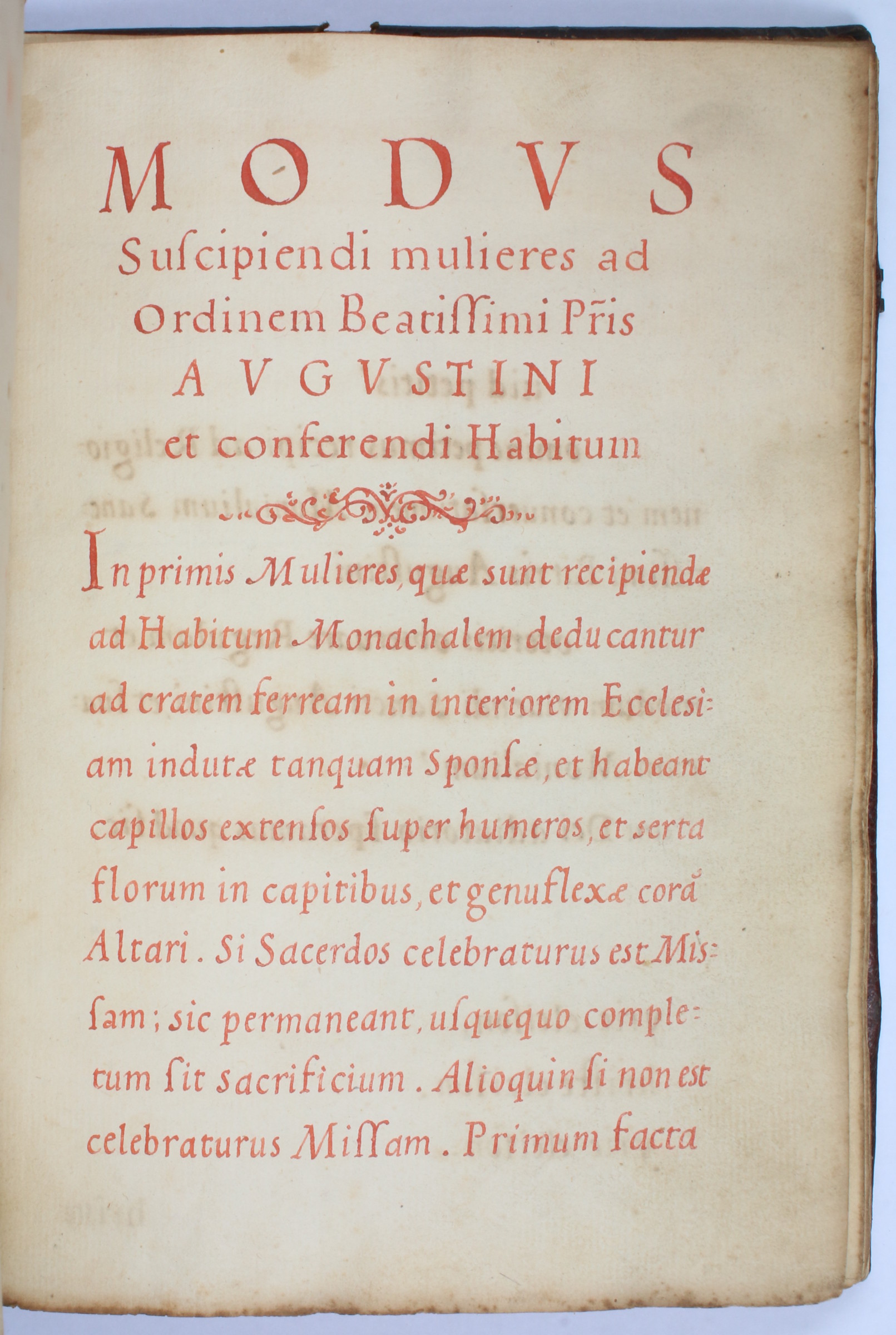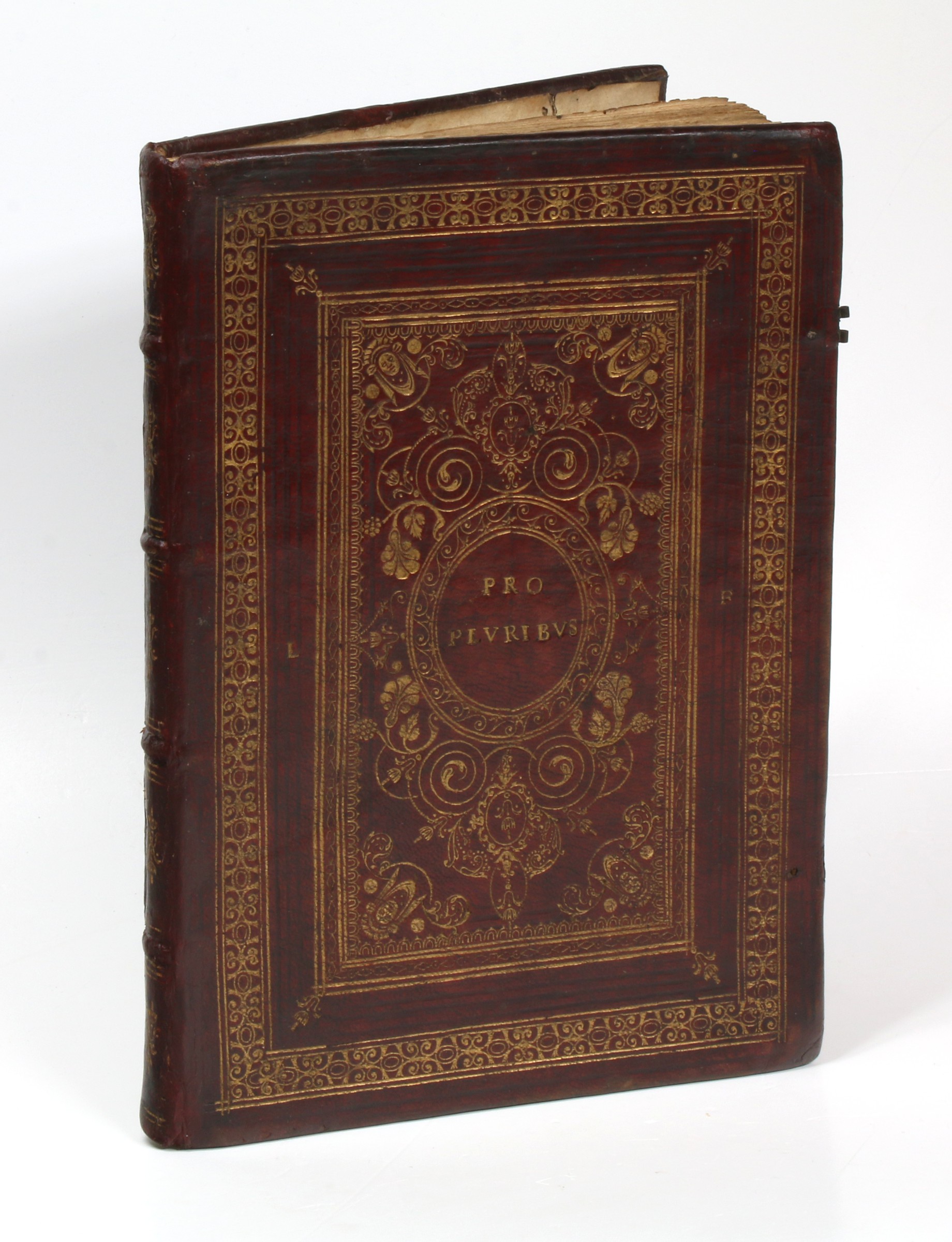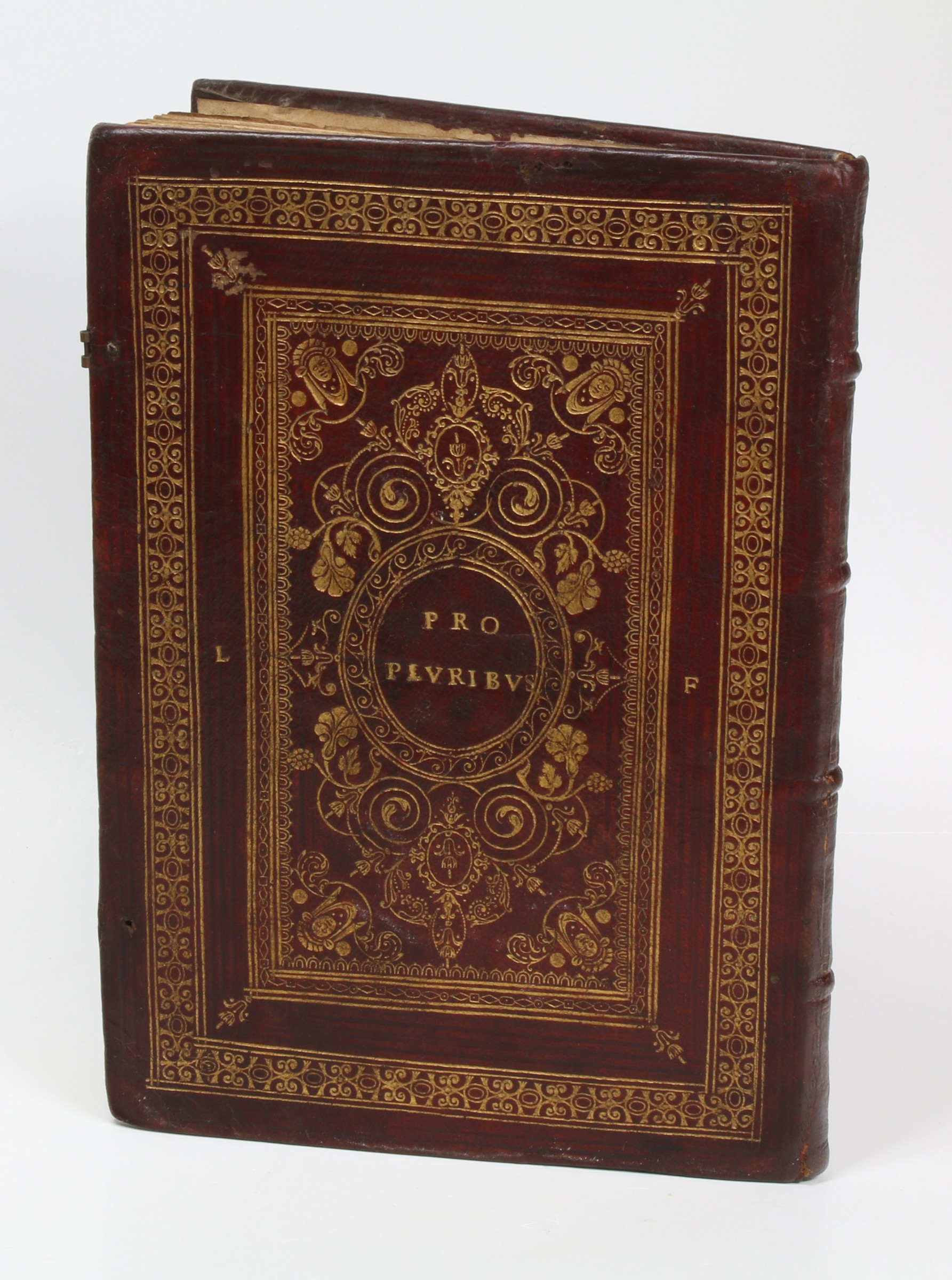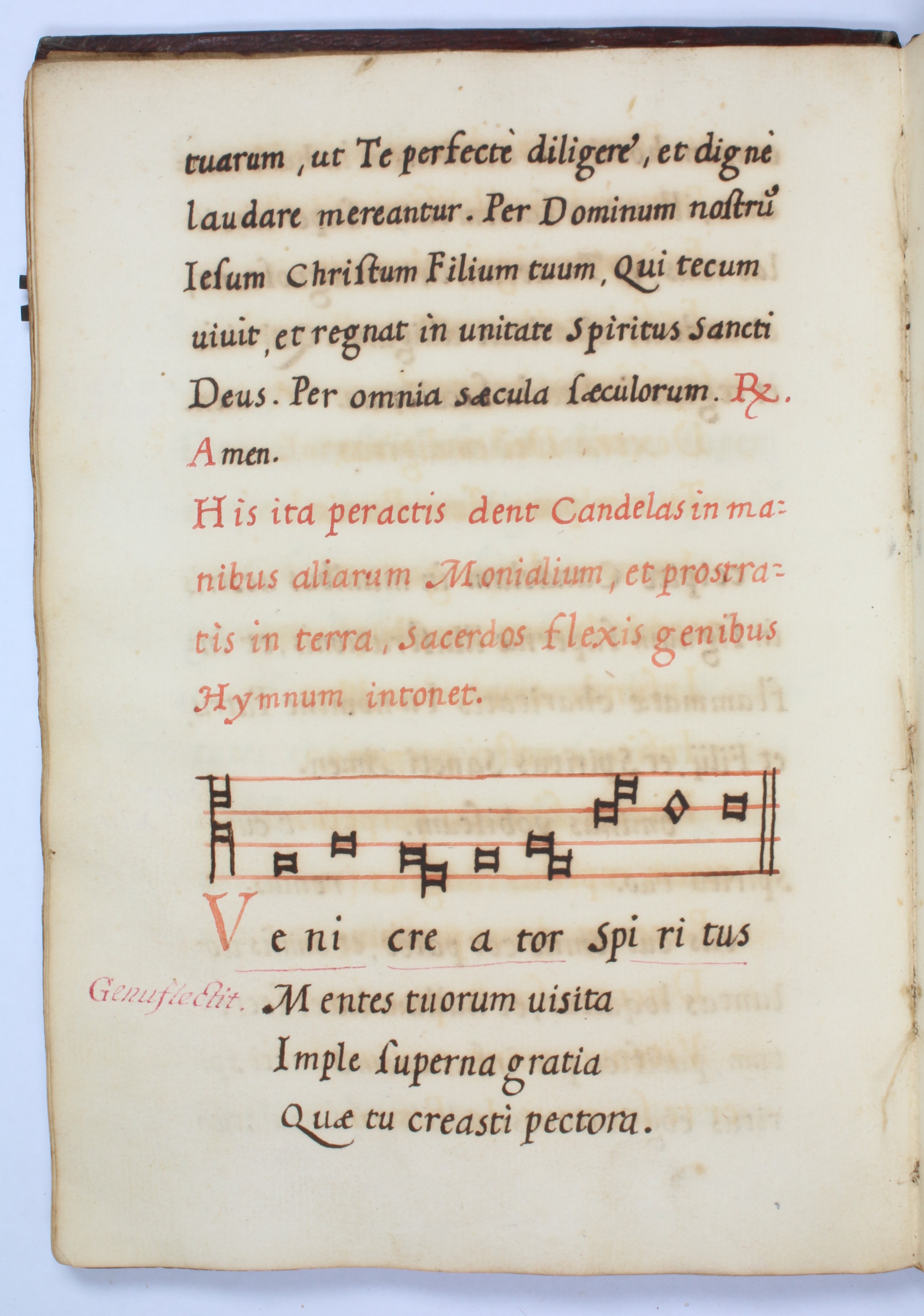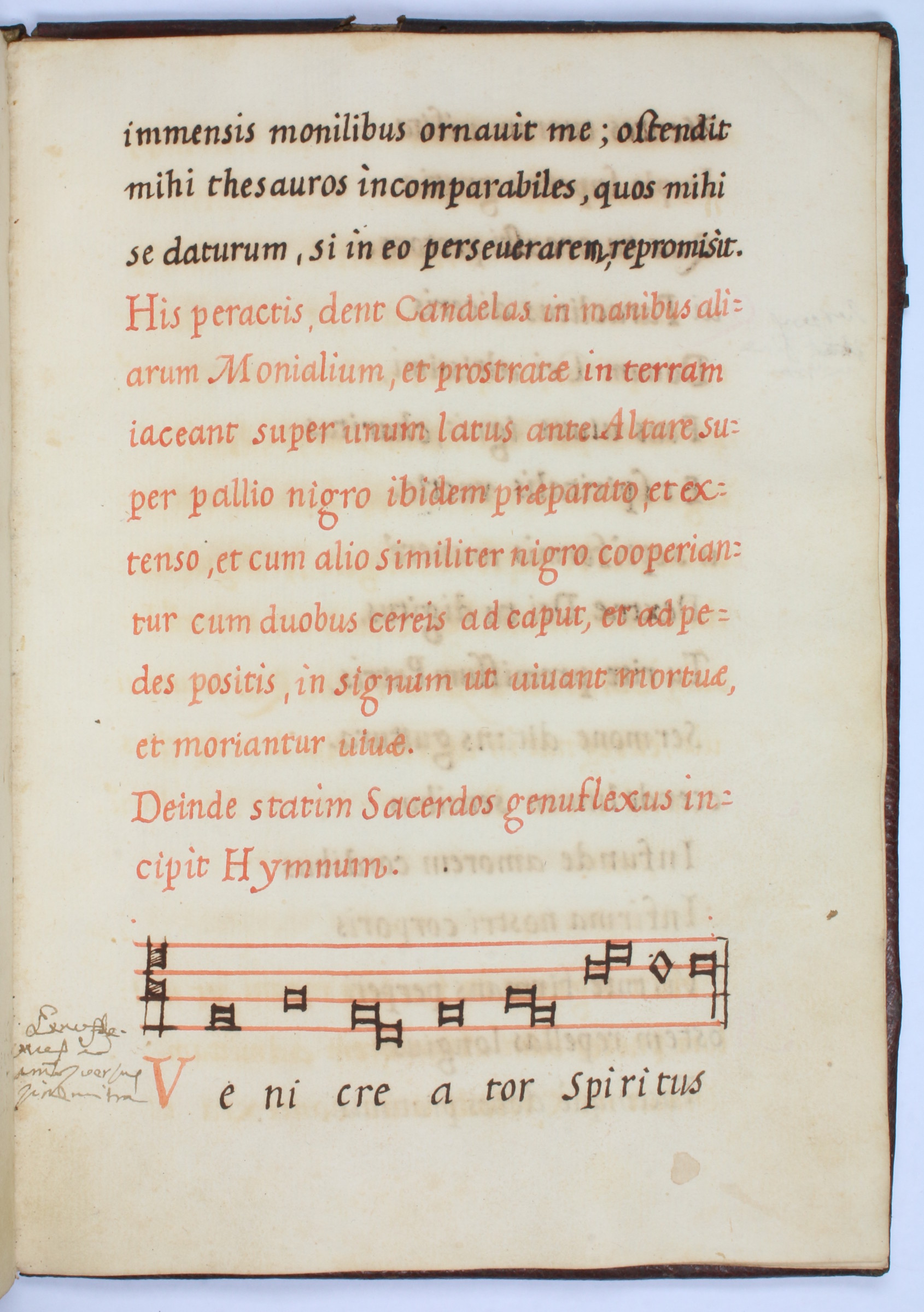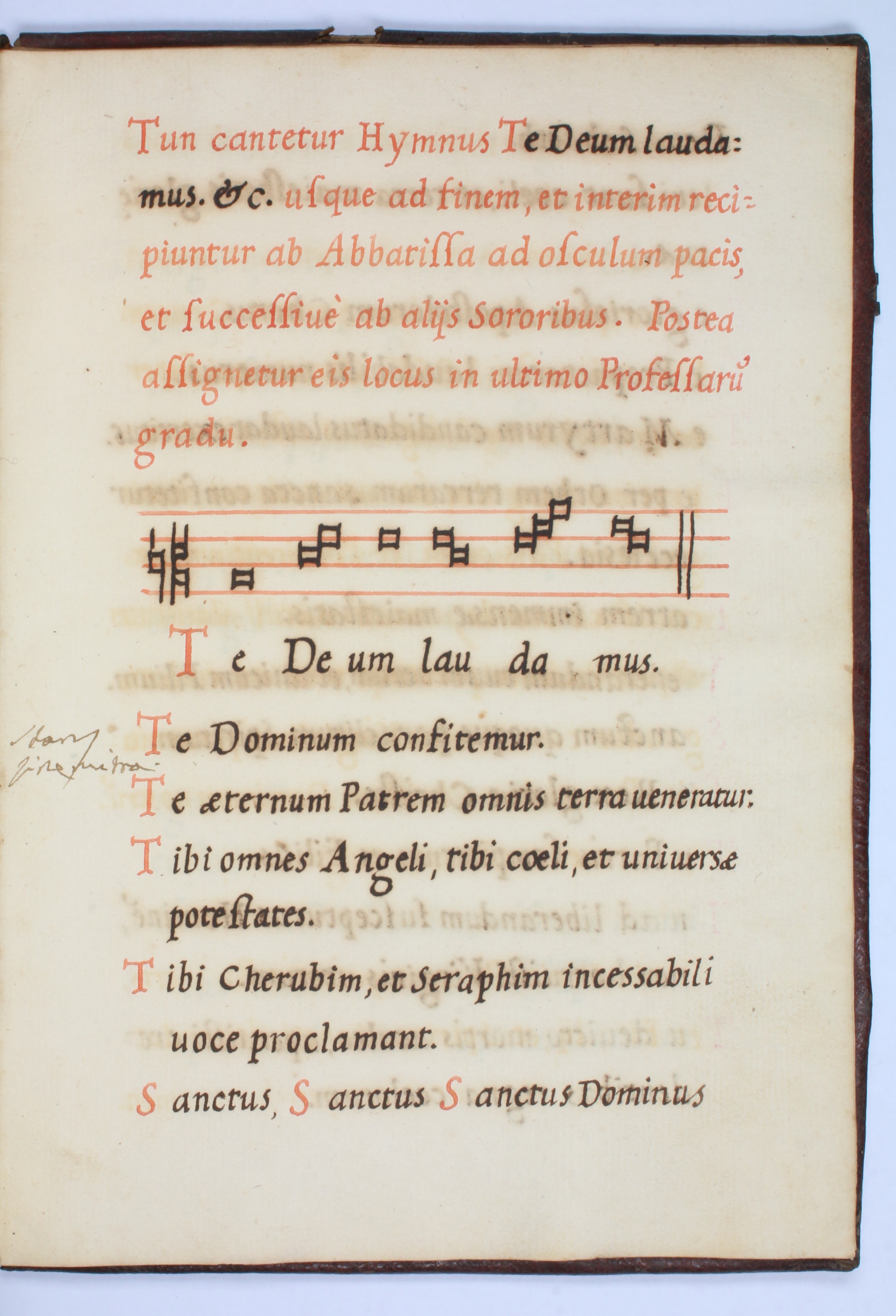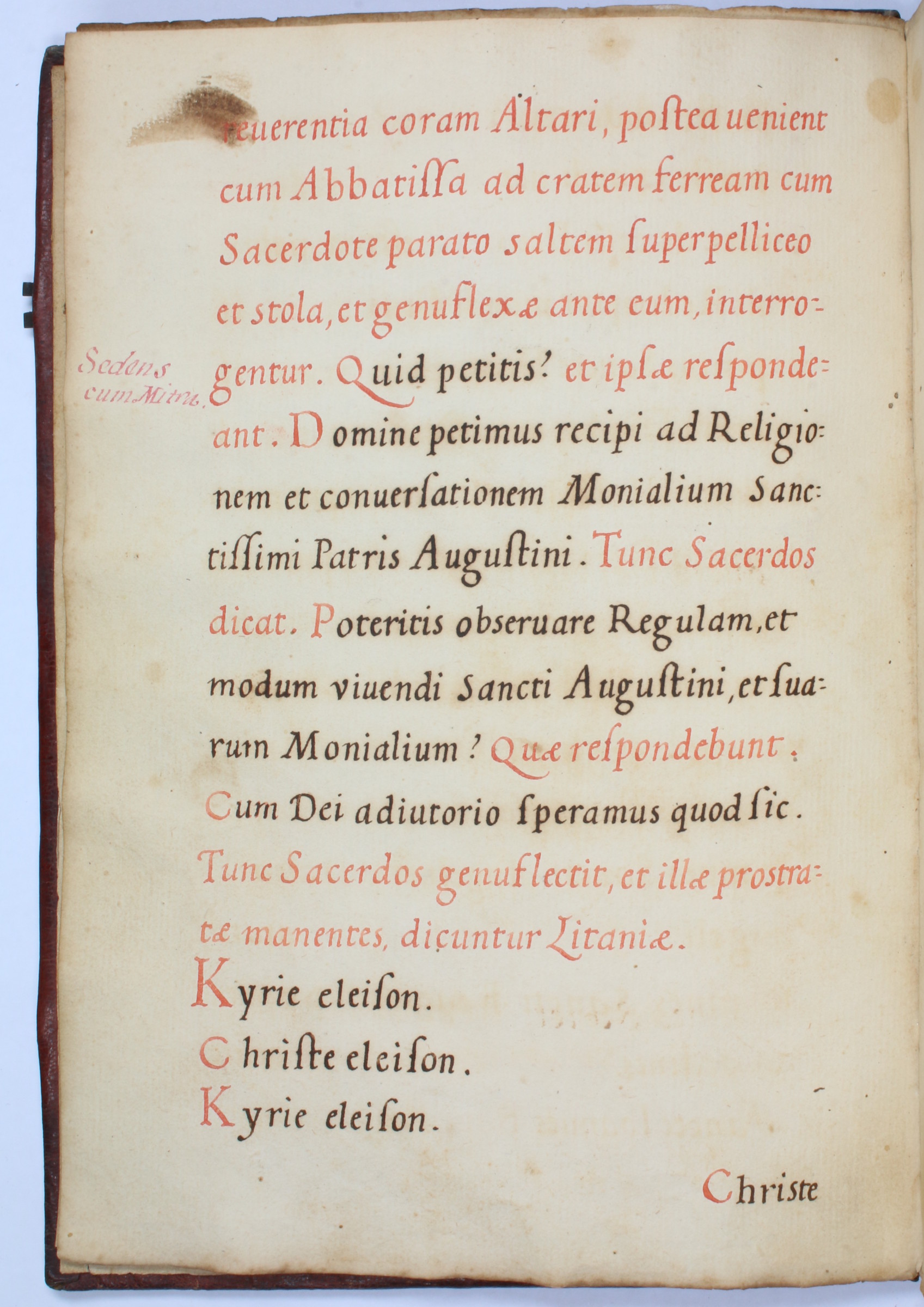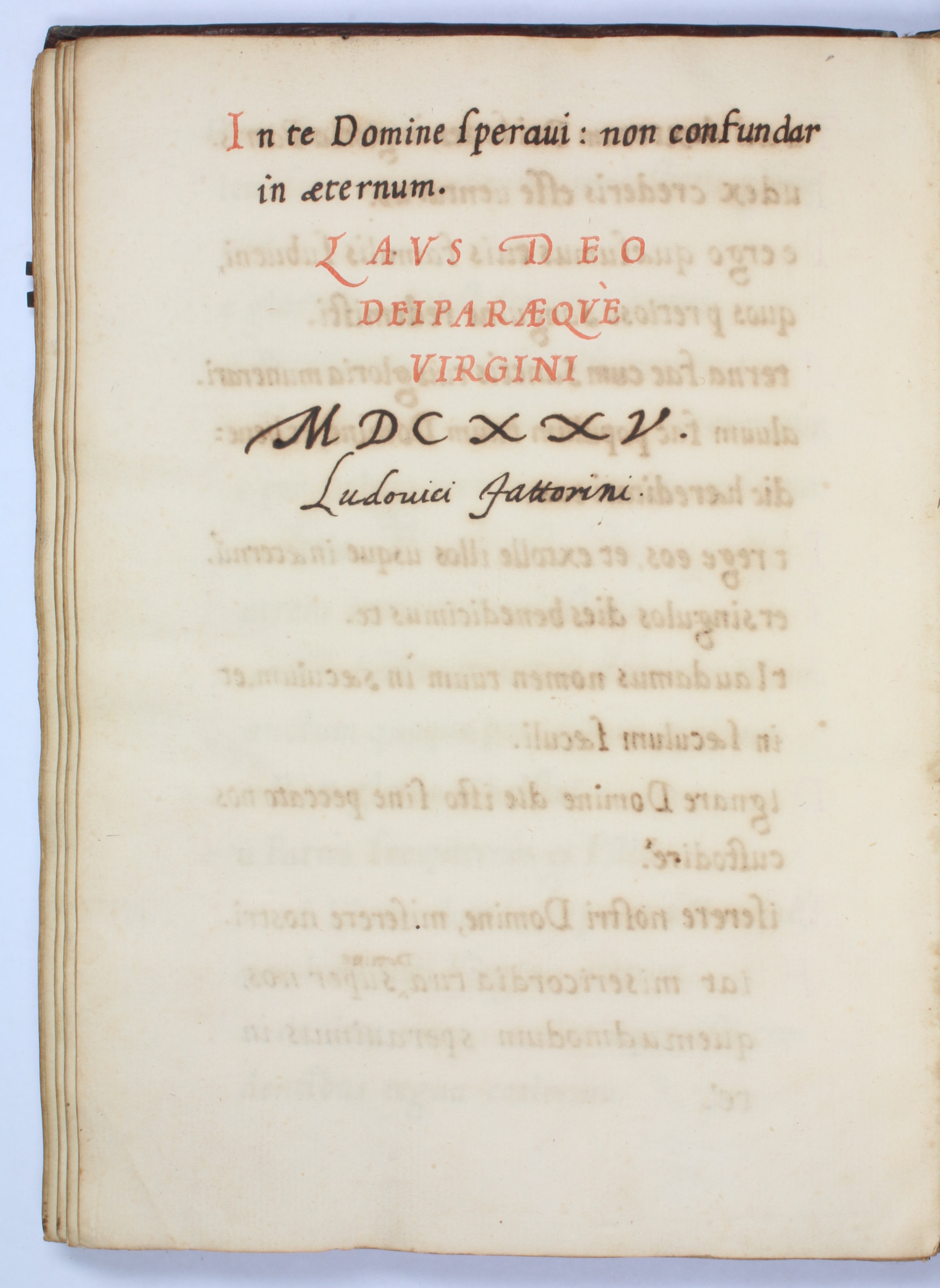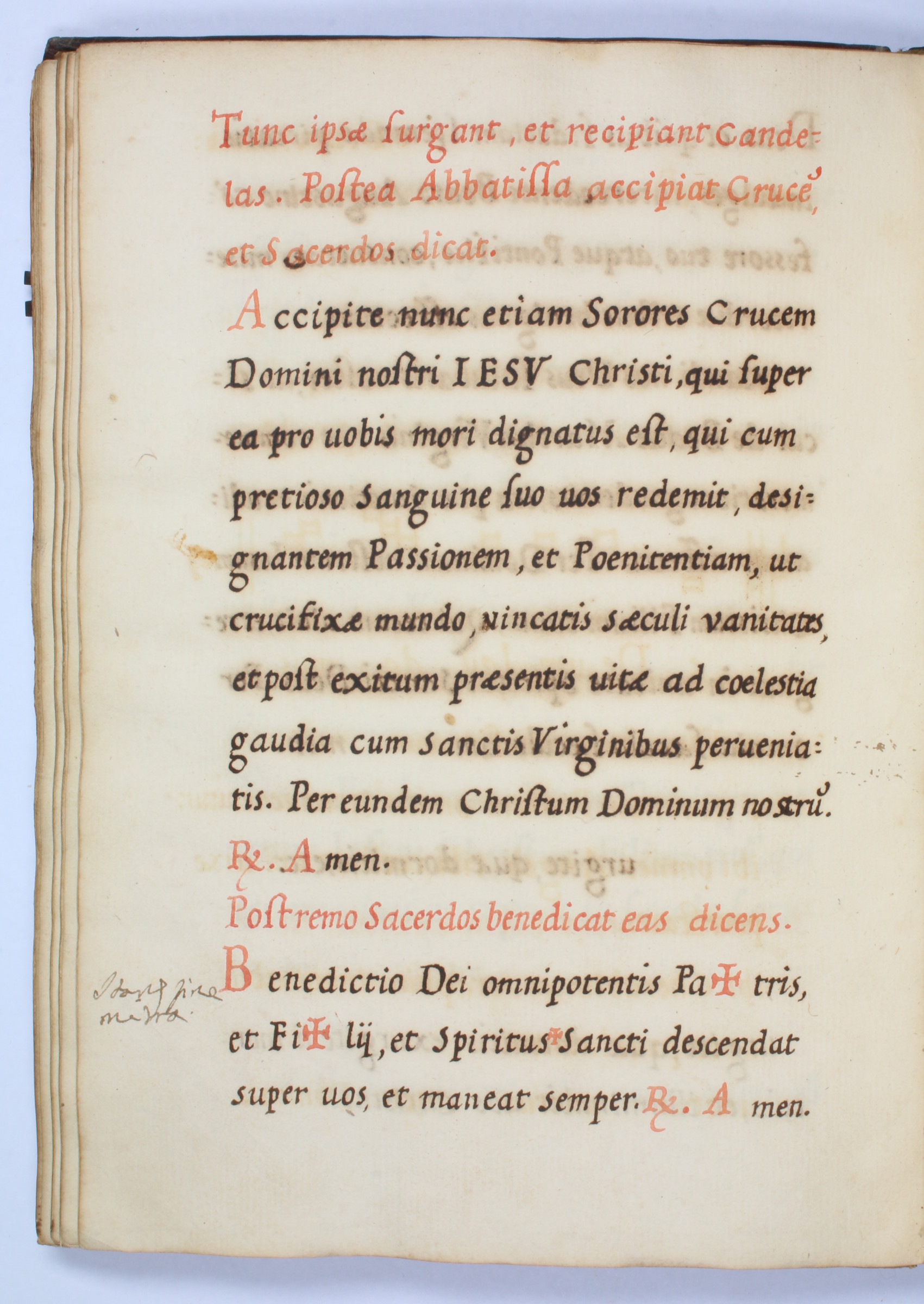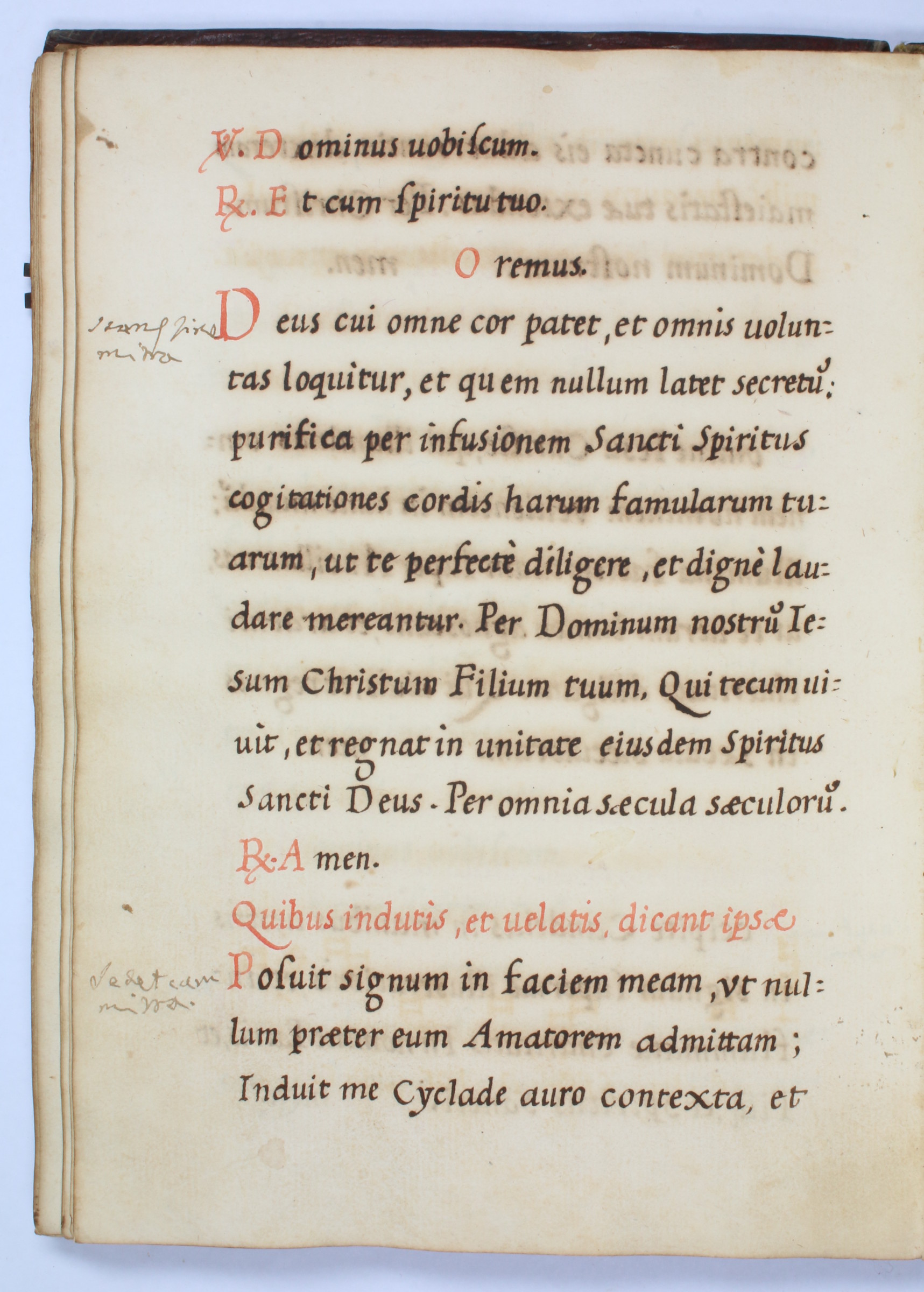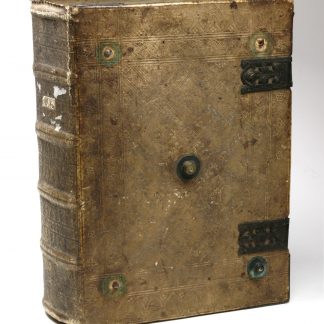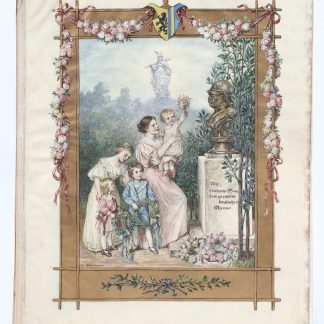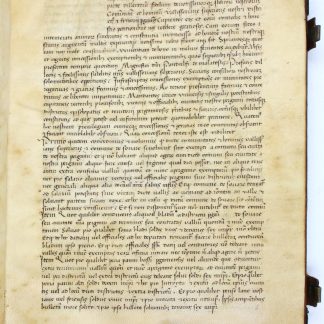Receiving nuns into the Augustinian Order
Modus suscipiendi mulieres ad ordinem beatissimi p[at]ris Augustini et conferendi habitum.
4to (164 x 229 mm). Latin manuscript on paper. 2 parts in one volume. (23) ff., 1 blank f., (19) ff. Contemporary full red morocco, elaborately gilt with "Pro Pluribus" supralibros and the initials of Ludovicus Fattorinus, cardinal-priest of San Marco, Rome.
A fine example of a manuscript code for receiving nuns into the Roman Catholic order of the Augustinian Sisters. It is divided into two parts: the "Modus Suscipiendi mulieres" (or, method of receiving women into the Augustinian order and bestowing the habit upon them), and the "Ordo suscipiendi ad professionem sorores sub regula S. Augustini" (or, order of admitting sisters to monastic profession under the Augustinian rule).
The Augustinian Sisters are oldest continuously existing branch of the Augustinian order. The nuns lived in cloistered monasteries and dedicated their lives to prayer and contemplation; their communities received the same spiritual formation as did the friars and priests of the Augustinian Order and lived according to the Rule of St. Augustine. Each convent was independent and not subject to the general rules of the order, which led to differences in rule, dress, and mode of life. Attempts at rectifying the increasingly disparate customs of the nuns started in 15th century, as evidenced by surviving manuscripts of the Rule of Saint Augustine for Nuns, and continued through the 17th century with more specific reforms. These rules were printed as early as 1618, but very few examples survive, and the print runs must have been minimal; a few also survive as manuscripts, such as the present example. This manuscript was owned or written by Lodovico Fattorini, an Augustinian friar who served as cardinal-priest of San Marco in Rome. It is handsomely bound in full red morocco with the Cardinal's initials "LF" in gilt, the motto "Pro Pluribus", and elaborate gilt decoration, signed on the last page by Fattorinus with a date of 1625.
Some marginal notations and musical hymns. Binding professionally restored, remains of lost clasps, else fine.

